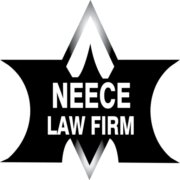Best White Collar Crime Lawyers in North Carolina
Share your needs with us, get contacted by law firms.
Free. Takes 2 min.
Or refine your search by selecting a city:
List of the best lawyers in North Carolina, United States
About White Collar Crime Law in North Carolina, United States
White collar crime refers to a wide range of non-violent offenses typically committed for financial gain. In North Carolina, these crimes often involve deceit, fraud, or the abuse of trust by individuals in business, government, or professional settings. Examples of white collar crimes include embezzlement, fraud, money laundering, bribery, identity theft, and tax evasion. North Carolina enforces strict penalties for white collar offenses, which can include both criminal prosecution and significant civil penalties.
Why You May Need a Lawyer
If you are under investigation for, accused of, or charged with a white collar crime in North Carolina, consulting an experienced attorney is critical. These cases can be complex with significant consequences, ranging from heavy fines to imprisonment and irreparable damage to reputation. Legal representation can be helpful in the following situations:
- You have received a subpoena or notice that you are a person of interest in an investigation.
- Your employer or a regulatory agency has accused you of misconduct involving finances or records.
- You have been charged with crimes such as forgery, fraud, tax evasion, or embezzlement.
- You are facing asset forfeiture or civil lawsuits connected to alleged white collar offenses.
- You need guidance on compliance, internal investigations, or reporting irregularities.
In all these cases, an attorney can help protect your rights, guide you through investigations, and provide a strong defense if criminal charges are filed.
Local Laws Overview
White collar crimes in North Carolina are prosecuted under both state and federal statutes. Many offenses are covered by specific North Carolina laws, while others may fall under federal jurisdiction, especially if the alleged activity crosses state lines or involves federal agencies. Key provisions include:
- Fraud statutes: Includes laws prohibiting bank fraud, insurance fraud, credit card fraud, and computer-related fraud. North Carolina law identifies specific types of fraud and imposes penalties according to the severity and the amount involved.
- Embezzlement: It is illegal to misappropriate goods or money entrusted to you. Charges and penalties depend on the relationship to the victim and the value involved.
- Forgery: Creating, altering, or using false documents with intent to deceive is punishable under state law.
- Identity theft: North Carolina law criminalizes obtaining, possessing, or using someone else’s identifying information for fraudulent purposes.
- Money laundering: Concealing or disguising the origins of illegally obtained funds is a serious offense under both state and federal laws.
- Bribery and public corruption: It is unlawful to offer, accept, or solicit bribes as a public employee or official.
Convictions can lead to jail or prison sentences, restitution, forfeiture of assets, fines, and long-term impacts on professional licensing and employment.
Frequently Asked Questions
What is considered a white collar crime in North Carolina?
White collar crimes typically involve non-violent acts committed for financial gain, such as fraud, embezzlement, forgery, bribery, tax evasion, insider trading, money laundering, and identity theft.
Are white collar crimes in North Carolina misdemeanors or felonies?
Depending on the nature and value of the offense, white collar crimes can be charged as misdemeanors or felonies. Many cases, especially those involving significant sums of money or breach of fiduciary duty, are prosecuted as felonies.
What penalties might someone face if convicted of a white collar crime in North Carolina?
Penalties may include incarceration, fines, restitution to victims, forfeiture of property, probation, and loss of professional licenses. The severity depends on the type of offense and the amount of money or value involved.
Can I be prosecuted under federal law for a white collar crime committed in North Carolina?
Yes, many white collar crimes fall under both state and federal jurisdiction. Crimes that cross state lines, involve federal agencies or regulations, or affect interstate commerce are often prosecuted in federal court.
What should I do if I learn I am under investigation?
You should consult an attorney immediately and avoid making any statements to investigators or law enforcement without legal counsel. Early legal representation can help protect your rights and advise you on the next steps.
Can I be held responsible for my employer’s actions?
If you knowingly participated in illegal activity or failed to report wrongdoing, you may face criminal liability. However, unintentional mistakes or being unaware of criminal conduct usually does not result in prosecution.
What are common defenses to white collar crime charges?
Defenses might include lack of intent, mistake, insufficient evidence, acting under duress, or proving that the accused did not participate in or benefit from the alleged crime. An attorney will assess which defenses may apply.
How long do authorities have to bring charges?
Each offense has a statute of limitations that determines the time frame for bringing charges. Complex or ongoing white collar crimes may allow for longer investigative periods, especially in federal cases.
Can a conviction be expunged from my record?
Certain convictions in North Carolina may be eligible for expungement, but eligibility requirements are strict. White collar offenses involving widespread harm or significant financial loss may not qualify for expungement.
Is it possible to settle white collar crime allegations outside of court?
In some cases, negotiations or settlements can be reached with prosecutors or regulatory agencies, especially when restitution can be made or when the accused cooperates. However, this depends on the specifics of the case and the charges involved.
Additional Resources
Individuals seeking information or support related to white collar crime in North Carolina may find the following resources helpful:
- North Carolina Department of Justice
- North Carolina State Bureau of Investigation (SBI) White Collar Crime Unit
- North Carolina Attorney General’s Office
- Office of Inspector General for various federal agencies
- Federal Bureau of Investigation (FBI) Financial Crimes section
- North Carolina Bar Association for attorney referrals
- Legal Aid of North Carolina for qualifying individuals
These organizations offer information, investigative services, and in some cases, referrals to legal professionals experienced in white collar crime matters.
Next Steps
If you believe you are under investigation or have been charged with a white collar crime in North Carolina, act promptly. Your next steps should include:
- Avoid discussing your situation with anyone except your lawyer.
- Contact an experienced criminal defense attorney as soon as possible to review your case and advise you.
- Gather and organize any documents, correspondence, or evidence that may be relevant to your defense.
- Follow your attorney’s guidance carefully, especially regarding cooperation with investigators and protecting your legal rights.
- Consider counseling or compliance training as recommended to help demonstrate good faith and minimize long-term consequences.
Being proactive and informed can make a significant difference in successfully navigating a white collar crime matter. Legal professionals can offer critical insights and representation tailored to your specific circumstances.
Lawzana helps you find the best lawyers and law firms in North Carolina through a curated and pre-screened list of qualified legal professionals. Our platform offers rankings and detailed profiles of attorneys and law firms, allowing you to compare based on practice areas, including White Collar Crime, experience, and client feedback.
Each profile includes a description of the firm's areas of practice, client reviews, team members and partners, year of establishment, spoken languages, office locations, contact information, social media presence, and any published articles or resources. Most firms on our platform speak English and are experienced in both local and international legal matters.
Get a quote from top-rated law firms in North Carolina, United States — quickly, securely, and without unnecessary hassle.
Disclaimer:
The information provided on this page is for general informational purposes only and does not constitute legal advice. While we strive to ensure the accuracy and relevance of the content, legal information may change over time, and interpretations of the law can vary. You should always consult with a qualified legal professional for advice specific to your situation.
We disclaim all liability for actions taken or not taken based on the content of this page. If you believe any information is incorrect or outdated, please contact us, and we will review and update it where appropriate.
Browse white collar crime law firms by city in North Carolina
Refine your search by selecting a city.















